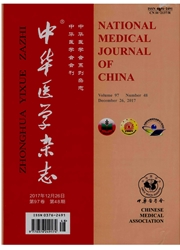

 中文摘要:
中文摘要:
目的 制备肿瘤相关糖蛋白-72(TAG-72)嵌合锚定T细胞,体内外实验检测其对肝癌的抑癌活性.方法 分离健康人外周血单个核细胞(PBMC),采用脂质体lipofectamineTM 2000介导的细胞转染,将已制备的重组真核表达载体抗TAG-72 scFv-CD3ξ-pcDNA3.0导入PBMC,获得肿瘤相关糖蛋白-72(TAG-72)嵌合锚定T细胞,以此为实验组治疗细胞;用SDS-PAGE检测TAG-72嵌合锚定T细胞中抗TAG-72 scFv-CD3ξ嵌合分子的表达,并用Western blotting证实.用转染空载体pcDNA3.0的PBMC作为对照组治疗细胞.将实验组及对照组的治疗细胞分别经尾静脉注射治疗荷TAG-72+肝癌细胞HepG2、荷TAG-72肝癌细胞BEL7402裸鼠动物模型,观察对裸鼠的抑癌效应.结果 SDS-PAGE检测TAG-72嵌合锚定T细胞嵌合分子抗TAG-72 seFv-CD3ξ的表达,显示大小为47 kDa的融合蛋白片段,与抗TAG-72 scFv-CD3ξ的理论值相符;Western blotting证实该片段CD3呈阳性表达.TAG-72嵌合锚定T细胞与肝癌细胞HepG2共培养后可对后者产生G1期阻滞.用TAG-72嵌合锚定T细胞经尾静脉注射治疗荷瘤裸鼠,发现实验组细胞对荷HepG2细胞裸鼠存活时间、体质量、肿瘤包块大小等方面疗效优于荷BEL7402细胞裸鼠的疗效,两者比较差异有统计学意义(P<0.05).结论 TAG-72嵌合锚定T细胞可特异性抑制荷TAG-72+肝癌细胞裸鼠的肝癌细胞生长;该治疗策略将为肝癌的临床诊治提供一种有希望的途径.
 英文摘要:
英文摘要:
Objective To prepare tumor associated glycoprotein-72 (TAG-72) targeted T lymphocytes,and to study the antitumor effect of it for hepatocellular cancer.Methods Peripheral blood mononuclear cells (PBMC) were isolated from healthy volunteers,the recombinant vector anti-TAG-72-scFv-CD3ξ-pcDNA3.0 were transfected into PBMCs by lipofectamine TM 2000,TAG-72 special lymphocytes were obtained.Meanwhile,lymphocytes transfected with plasmid pcDNA3.0 were used as controls.TAG-72 special lymphocytes and that of controls were injected by tail vein of hepatocellular cancer-bearing nude mice.Antitumor response was observed.Results T lymphocytes were cultivated 24 hours and the expression of anti-TAG-72 scFv-CD3ξ was detected by SDS-PAGE and Western blotting.A 47 kDa protein was confirmed as theoretical analysis and proved CD3 + T lymphocytes were cultivated after 12 and 24 hours,hepatocellular carcinoma cells were co-cultured with them.G1 blocks of TAG-72 + hepatocellular tumor HepG2 cells were observed.Annexin V-FITC/PI double staining FCM assay was used to further determine the TAG-72 +/ hepatocellular tumor cocultivated with T lymphocytes with chimeric receptor.The apoptotic rate of TAG-72 + hepatocellular tumor HepG2 cells was (47.8 ±4.2)%,while that of TAG-72 hepatocellular tumor BEL7402 cells was (18.7 ±2.8)%,which was significantly lower than that of TAG-72 + hepatocellular tumor cells.Conclusion This receptor design will facilitate efficient generation of genetically T lymphocytes with chimeric receptor and may provide valuable tools for the cellular immunotherapy of hepatocellular cancer.
 同期刊论文项目
同期刊论文项目
 同项目期刊论文
同项目期刊论文
 期刊信息
期刊信息
